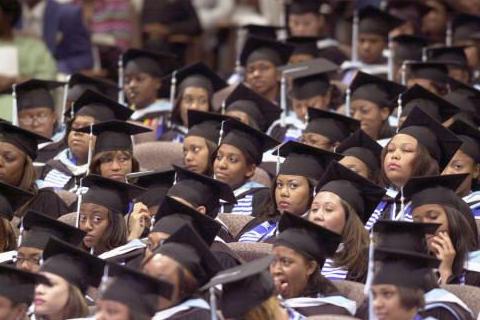
In Voices of our Foremothers, Birney makes a personal dedication to the educated Black women who played a vital role in her education process as well as other walks of her life. It was while in attendance at the College of Wooster where Birney encountered three Black female professors that made a lasting impression on her life. These Black female professors encouraged Birney to think beyond just the information that she was given and to instead think with all of her being. Other Black female teachers and professors throughout her school years had done the same. Birney noticed that her teachers and professors truly cared about her not only when it came to her academic success but they cared about her as an individual. Such caring and compassion from these women made Birney feel comfortable in her college environment which had become her “home away from home.” It was the presence of her collegiate professors that inspired Birney to become an educator so that she too could encourage other generations of young Black females.
Birney continues her dedication to our African-American Foremothers by writing of the legacy of educated Black women in history who devoted themselves to educating the African-American community. Such women that she mentions include: Emma Wilson, Lucy Laney, Mary McLeod Bethune, and Anna Julia Cooper just to name a few. These women found ways to serve their communities by means of education. As I read about the devotion to serve by these strong, educated Black women I reflected on my experience at Spelman College. Several of the professors at Spelman are Spelman alum; alum who were instilled with the idea to serve others and to serve the world while they were in attendance at Spelman College. Today these women are encouraging other young Black women to serve as well as to succeed as they matriculate through Spelman and enter the world outside of the college gates.
Birney continues her dedication to our African-American Foremothers by writing of the legacy of educated Black women in history who devoted themselves to educating the African-American community. Such women that she mentions include: Emma Wilson, Lucy Laney, Mary McLeod Bethune, and Anna Julia Cooper just to name a few. These women found ways to serve their communities by means of education. As I read about the devotion to serve by these strong, educated Black women I reflected on my experience at Spelman College. Several of the professors at Spelman are Spelman alum; alum who were instilled with the idea to serve others and to serve the world while they were in attendance at Spelman College. Today these women are encouraging other young Black women to serve as well as to succeed as they matriculate through Spelman and enter the world outside of the college gates.
Kirah Brace


